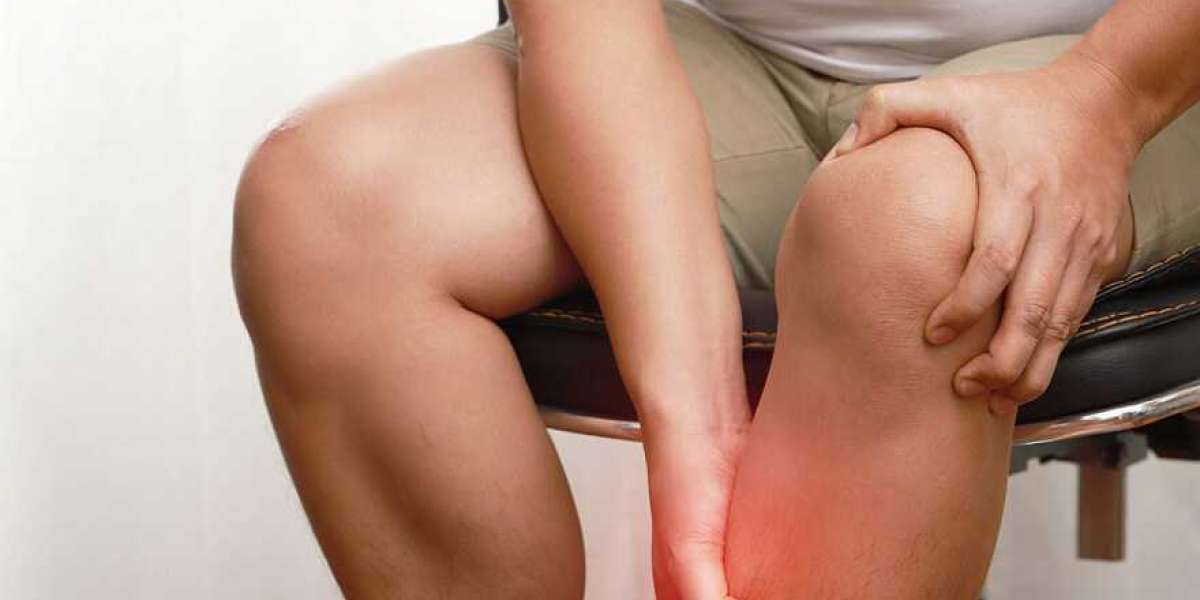Leg muscle pain is a common issue that can range from mild discomfort to severe, debilitating pain. It may occur due to various causes, such as overuse, injury, muscle strain, or underlying medical conditions. Understanding how to manage and treat leg muscle pain effectively is essential for recovery and long-term well-being.
Causes of Leg Muscle Pain
The first step in treating leg muscle pain is identifying its cause. Common causes include overuse during exercise, dehydration, or injuries like muscle strains and sprains. Sudden, involuntary muscle contractions, known as cramps, can also lead to pain. In some cases, the discomfort may stem from medical conditions such as peripheral artery disease, sciatica, or deep vein thrombosis. Knowing the underlying cause can help in choosing the most effective treatment approach.
Rest and Recovery
Resting the affected leg is crucial for muscle recovery, especially after an injury or overexertion. Reducing physical activity allows the muscle fibers to heal and prevents further damage. Elevating the leg can also help by reducing swelling and promoting better blood circulation to the injured area.
Cold and Heat Therapy
Applying ice to the affected area is a highly effective way to reduce swelling and numb pain, particularly during the first 48 hours after an injury. Ice packs should be applied for 15 to 20 minutes at a time, several times a day. After the initial phase, switching to heat therapy can relax the muscles and improve blood flow, which aids in the healing process. Warm towels or heating pads are ideal for this purpose.
Hydration and Nutrition
Dehydration is a common cause of muscle cramps and discomfort. Ensuring adequate water intake is essential, especially after physical activity. Including foods rich in electrolytes, such as bananas, oranges, and leafy greens, can help maintain muscle function and prevent cramps. A balanced diet that includes calcium, magnesium, and potassium supports overall muscle health and reduces the likelihood of recurrent pain.
Massage and Stretching
Gently massaging the painful area can ease tension in the muscles and improve circulation, reducing pain and promoting relaxation. Stretching the affected muscles, either through guided exercises or gentle yoga, can also relieve discomfort. Regular stretching helps improve flexibility and prevents muscle stiffness, especially after physical exertion.
Over-the-Counter Pain Relief
For more immediate relief, over-the-counter medications such as ibuprofen or naproxen can help reduce inflammation and alleviate pain. Topical analgesics, like creams or gels containing menthol, may also be applied to the affected area for localized relief. However, these treatments should only be used as directed and not relied upon for long-term management.
Physical Therapy
If the pain persists or is linked to a specific condition, physical therapy may be beneficial. A physical therapist can design a personalized exercise program to strengthen the muscles, improve mobility, and address the root cause of the pain. Therapy often includes a combination of strengthening exercises, stretches, and techniques to correct posture and gait.
Addressing Underlying Conditions
In some cases, leg muscle pain may indicate a more serious issue such as peripheral artery disease, deep vein thrombosis, or sciatica. If the pain is severe, accompanied by swelling, redness, or difficulty walking, it is crucial to consult a healthcare professional for proper diagnosis and treatment. Addressing the underlying condition is essential for lasting relief and preventing complications.
Lifestyle Modifications
Preventing leg muscle pain often involves making adjustments to daily routines. Engaging in regular physical activity can keep the muscles strong and flexible, reducing the risk of strain. However, it is equally important to avoid overexertion and to listen to your body’s signals. Warming up before exercise and cooling down afterward can help prepare the muscles for activity and reduce post-exercise soreness.
Wearing appropriate footwear, particularly during exercise or prolonged periods of standing, provides adequate support and minimizes strain on the leg muscles. Maintaining a healthy weight is also beneficial, as excess weight puts additional pressure on the legs and muscles.
Medical Interventions
For chronic or severe leg muscle pain that does not respond to home treatments, medical interventions may be necessary. A healthcare provider may prescribe stronger medications, muscle relaxants, or anti-inflammatory drugs to manage pain and inflammation. In cases where the pain is caused by structural issues, such as a torn muscle or compressed nerve, surgical options may be considered. Buy Pain O Soma 500mg online
When to Seek Medical Attention
While most cases of leg muscle pain resolve with home remedies, there are situations where professional care is essential. Persistent pain lasting more than a week, severe pain that limits mobility, or symptoms such as swelling, redness, or warmth in the affected area should not be ignored. Sudden, unexplained pain, especially if accompanied by difficulty breathing, could indicate a serious condition like deep vein thrombosis and requires immediate medical attention.
Conclusion
Treating leg muscle pain involves a combination of rest, proper care, and targeted therapies. Identifying the cause of the pain and addressing it with the appropriate measures can lead to faster recovery and prevent future occurrences. Simple remedies such as hydration, stretching, and massage often provide relief for minor discomfort, while persistent or severe pain may require medical evaluation. By adopting healthy habits and paying attention to your body’s needs, you can ensure long-term muscle health and mobility. Buy Prosoma 500mg online for muscle pain.








